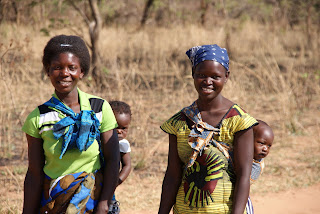
At Macha we live about 1,100 meters above sea level. Much part of Southern Africa is more or less on a plateau, and it often feels that reflects in our life. Life , almost cannot be more full with events and experiences, it is life to the fullest! Some of the ‘news items’ of the four weeks:
I drove about 6,000 kilometers in three weeks, through Zambia, Zimbabwe and South Africa. Most of it we pulled our trailer along, with goods from Zam to Zim and from South Africa. It was great to see many of our friends in these countries, and we stayed in their houses, or camped in their driveways. We found the team in Zim well catered for copying in their specific circumstance. Together with the local community lots of efforts are put in successfully improving the facilities. Of course, going it relative and tough. However, the local team effort is commendable, and requests for support by the local Social Welfare, and the Hospital are being accommodated to the best of capabilities. We are grateful for this collaborative effort.
All this driving around is now possible with our ‘new car’ available and operational. We received the number plates and assembled all paperwork - including registration papers, insurance, Interpol clearance, driver license validation, yellow card, letters of authority, and road taxes - just three days before commencing for the long journey. During this time we also had room for relaxing (our summer holiday) with family visits to Pilanusberg (RSA) and the Vumba (Zim). During all travels we had local talent from Zambia and Zimbabwe along, giving them a needed break and new experiences. All in all we already drove more then 10,000 kilometers since the car arrived in Macha late 2008.
Just before New Year large donor funds hit the accounts of PrivaServe Foundation, allowing us to settle all current activities and debts. It is wonderful to enter the new year with a clean sheet, and to facilitate the flush of activities that we expect to happen. The new year started with every local talent dived in planning and administration.
Professionally we started the new year with operational separation of units with different business models, to facilitate specialization, coordination, and growth. LinkNet's leader is now Gregory Mweemba and the Building activities are led by Cynthia Mumba. Leadership Academy and Transport branches also operate more or less independent, with 'Macha Works' overarching the activities in a coordination role, assessing local plans and reports. It is exiting to see the maturity of the team, and how they relish the opportunities ahead.
Also the past period gave me an opportunity to catch up on some reading. ‘The Shack’ is a best seller in South Africa and served as a cup of fresh water, I enjoyed the read.
The year also started with many hours in the air, facilitated by Flying Mission. Pilot family Rick and Tracy Rempel settled in Macha, with housing gracely provided by Macha Hospital. And, Macha now also has its own resident airplane, a Cessna 210, often flying over 150 knots an hour! Miracles and progress abound. With its connectivity, quality primary education, and abilities in transport, Macha even becomes attractive for international coordination activities. In that manner Mennonite Central Committee Southern Africa coordinators are settling in Macha for their work in coordination of MCC travels in Southern Africa.
More cooperation efforts are being established with joint activities within the setting of the Global Research Alliance. Applied research in rural internet connectivity is the agenda, and grant proposals, white papers, and the like are being penned down. Currently the cooperation includes applied research partners in Finland, Germany, South Africa and Netherlands. Even contacts with Australia are growing.
In the mean time we continue to grow our knowledge base of the rural areas, and as such I continued discussions in Lusaka, touched down in Loloma, and visited Chitokoloki (near Angola) last week.
It is high time that our Tonga Hut in the garden is being repaired. The grass roof caved in one year ago, but we did not work on it as all other projects were of higher priority. Good rains this year stimulated a full roof-collapse, and thus no escape than to really get going with this. Now the grass is getting on a new wooden frame, and we look forward to its completion.
The electricity company ZESCO started to deliver on its contract to connect Ubuntu Campus with an 11 kV line. It was 11 months ago that we paid the contract, but now we can see something happening, with three quarters of the poles standing. Let’s hope that we gain some more speed in this work, which will be a big relieve and support for the activities there.
 This morning, while cycling up a hill from bringing the children to school, a whole choir of children stood at a distance, screaming How are you? on the top of their voices. While jelling back I am fine! it struck me that they aired the one-billion dollar question.
This morning, while cycling up a hill from bringing the children to school, a whole choir of children stood at a distance, screaming How are you? on the top of their voices. While jelling back I am fine! it struck me that they aired the one-billion dollar question.










